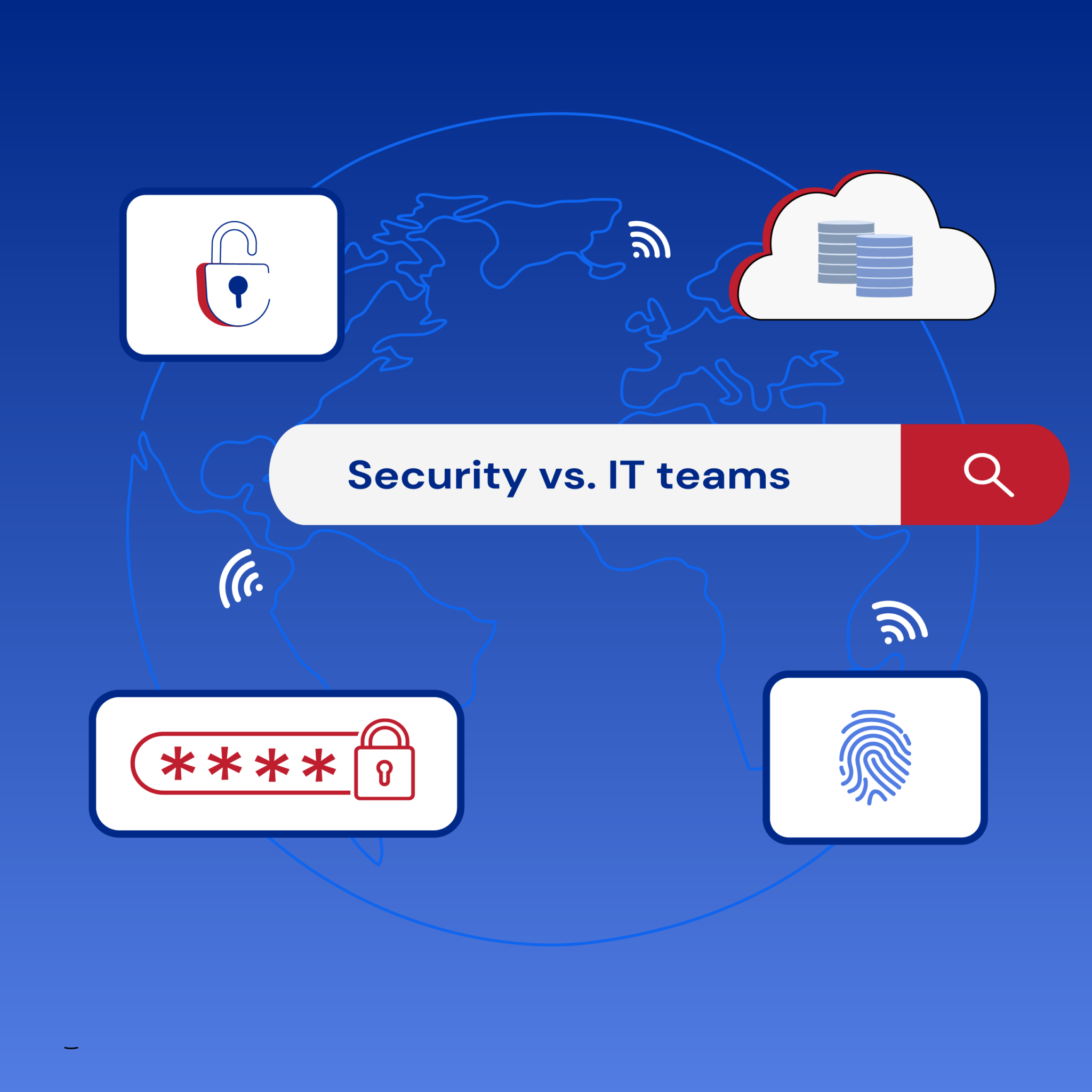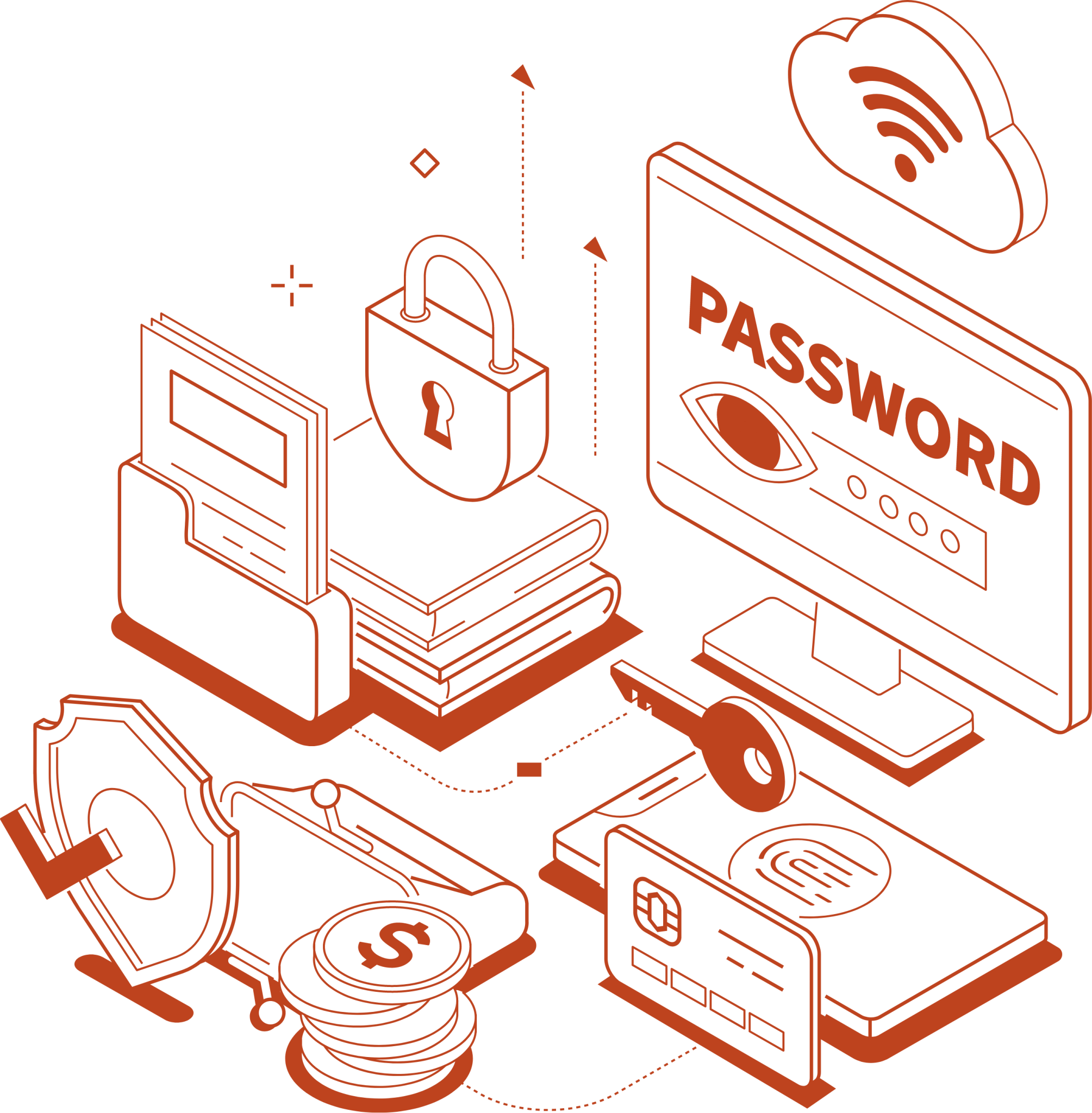The Dual Role Dilemma: Challenges Faced by IT Teams Doubling as Security Teams
Over the past five years, the attack surface of businesses has witnessed significant expansion, mainly attributed to the rise of remote work and the utilization of personal devices within company networks. This broader array of devices has, in turn, intensified the threat of cyber intrusions, posing serious risks to organizations of all sizes.
Surprisingly, small businesses find themselves at an even greater risk of cyberattacks than many larger enterprises, with attacks against SMBs rising by a staggering 150% in the last 2 years. Unlike their larger counterparts, smaller businesses often lack the luxury of dedicated security teams to safeguard their employees and infrastructure. Consequently, IT teams shoulder the dual responsibility of managing both technology and security requirements, stretching their resources thin. In this blog, we will delve into the challenges faced by IT teams doubling as security teams and explore the potential dangers of doing so.
Time Dedicated to IT and Security
Before delving into the dual role of IT and Security teams, let’s first examine the time required to operate each function independently. The typical tasks of IT teams within an organization encompass onboarding new devices, creating user profiles, managing infrastructure, and providing help desk expertise for day-to-day issues. In essence, IT is responsible for “keeping the lights on” in a business. However, it’s crucial to note that most IT professionals face overwhelming workloads and are often understaffed. According to recent surveys, 59% of IT professionals in the US report working over 45 hours per week, and six out of ten admit to lacking the necessary resources to perform their jobs efficiently. These figures clearly highlight the highly time-consuming nature of working in an IT department.
On the other hand, Security Teams are typically comprised of engineers and analysts dedicated solely to maintaining the company’s security posture. Their responsibilities include threat detection, incident response, threat hunting, onboarding security tools, and ensuring compliance. Faced with this array of tasks and the pressure of safeguarding the organization, security professionals often find themselves experiencing burnout, working with inadequate staffing, and feeling dissatisfied. In fact, over 27% of cybersecurity professionals left their jobs in 2022 due to burnout, and security staff and leaders average an additional 11 hours of work per week.
When we combine the average extra time for both IT and Security, we’re looking at an additional 16-20 hours of work per 40-hour work week. These numbers are prevalent in enterprises with large budgets and ample cybersecurity staff, leaving us to wonder about the challenges faced by small and medium-sized businesses.
The Converging Role: IT and Security
It is a common misconception that SMB businesses do not need to worry about cyber attacks. However, this couldn’t be further from the truth. In 2021, a startling 61% of all cybersecurity attacks were targeted at businesses with fewer than 100 employees, particularly in non-traditional technology-based industries such as manufacturing, consumer goods, construction, and retail.
Despite being frequent targets, SMBs often lack the financial means to invest significantly in cybersecurity, setting them apart from their enterprise counterparts. Shockingly, 47% of businesses with under 50 employees have no security budget, and a staggering 85% of businesses with under 500 employees admit to having no full-time security-specific employees. As a result, these businesses face an alarming 350% increase in cyberattacks compared to larger enterprises.
Given these financial constraints, many SMBs heavily rely on their IT teams to double as security teams. This puts IT professionals, who may not possess specialized security expertise, in a challenging position, as they are tasked with responsibilities that can lead to grueling 60-hour workweeks. Moreover, they are expected to counter approximately 30,000 cyberattacks that occur nationwide every day. Although this might sound overwhelming, SMBs often find themselves with limited options due to the rising costs of hiring in-house security staff and implementing complex security products.
In the face of these daunting challenges, SMBs must seek efficient and sustainable solutions to protect their businesses against cyber threats, without compromising their limited resources and workforce.
The Outsourced Solution
With all the data provided above, the first thought for most SMBs is to outsource their IT and Security work to commonly managed service providers (MSPs). In an ideal scenario, this process is straightforward – find a suitable vendor, pay their fee, and obtain the required IT infrastructure and cybersecurity safeguards.
However, the reality is often different, as many businesses discover MSPs who simply take their monthly payment and provide subpar services. Surprisingly, over 60% of businesses report overpaying for their managed services, with an additional 30% expressing dissatisfaction with the services they receive. These issues can stem from poor integrations, being locked into specific vendor solutions, and experiencing a lackluster customer experience. Unfortunately, many vendors offer a one-size-fits-all approach to security, which may not align with the unique needs of each business. As a result, SMBs must be cautious in their selection of MSPs and seek reliable partners who genuinely prioritize their security and IT needs.
How the Right Cybersecurity Provider Can Change Everything
The right cybersecurity provider should seamlessly integrate with your business, functioning as an extension of your internal security team. Their level of service should be exemplary, going above and beyond to identify and respond to security threats effectively. Moreover, they should offer invaluable foresight to guide your business in making future security investments. These three essential qualities are crucial in ensuring that a cybersecurity provider delivers the proper return on investment, a hallmark of their success in the past. With the right partner by your side, you can rest assured that your business is fortified against cyber threats and poised for a secure and prosperous future.
At Hada Security, we are veterans of the cybersecurity space and are tired of watching small businesses get overlooked for protection. With rising costs and dangers, it’s now more than ever that small business owners need our help. We know that one solution doesn’t fit all. That’s why our set of security products and services meet our clients where they’re at in their security journey. Take the first steps with our 5-Minute Security Quiz – it’s a fun way to get started! Let us help make your business a fortress against cyber threats.




